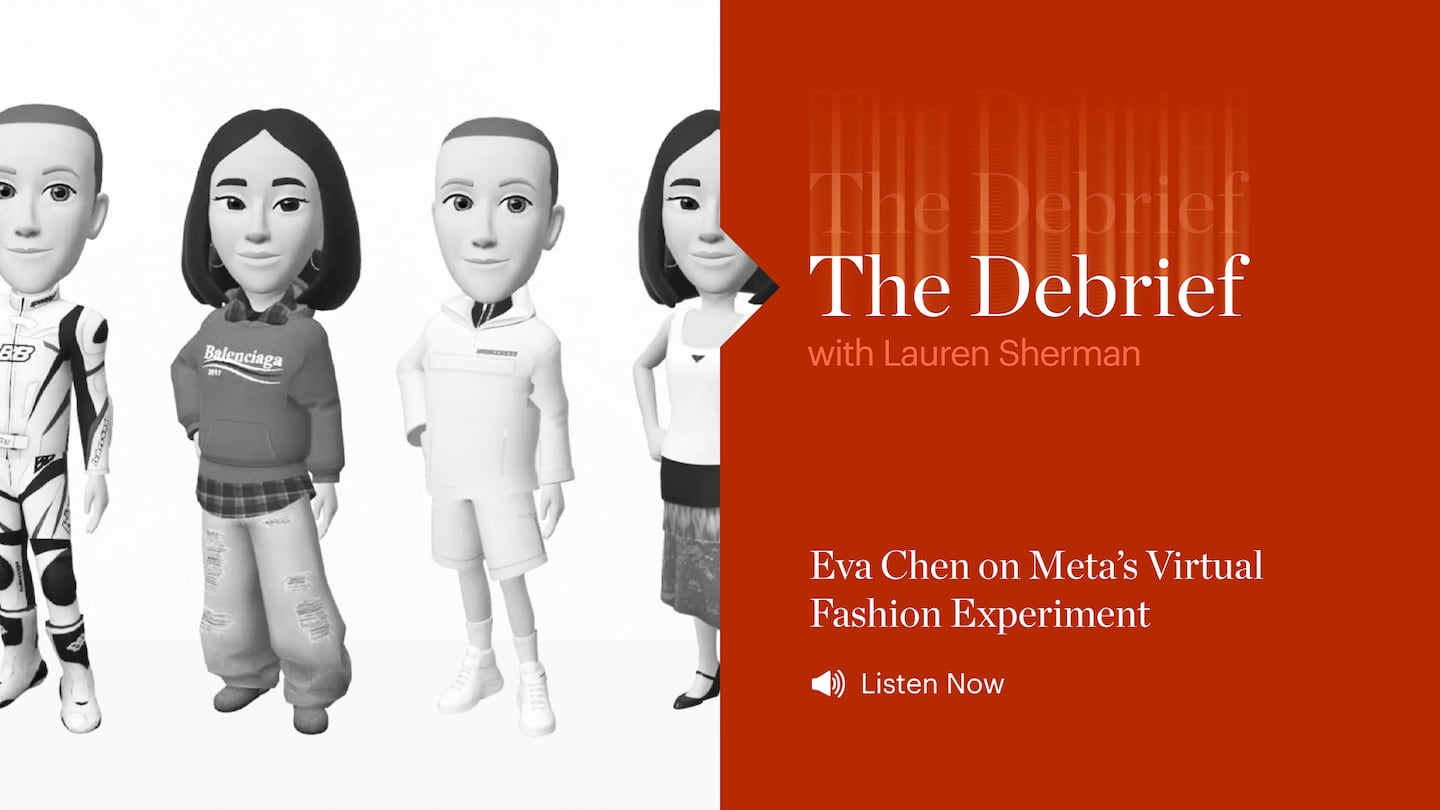
The Business of Fashion
Agenda-setting intelligence, analysis and advice for the global fashion community.

Agenda-setting intelligence, analysis and advice for the global fashion community.

Background:
Social-media company Meta has launched a virtual clothing store, and Balenciaga, Prada and Thom Browne are the first major designers to create looks fit for avatars in Mark Zuckerberg’s metaverse. The designs, available for use on Instagram, Facebook and Messenger, include a Balenciaga motorcycle suit, Prada shorts and one of Thom Browne’s signature grey suits. The move marks Meta’s formal entry into the virtual high-fashion business after Zuckerberg declared his ambitions to build the metaverse in late 2021.
“As a fashion person, it took me a little while to grasp exactly what [Zuckerberg’s vision for the metaverse] meant … People want as many ways as possible to express themselves via their avatars in the metaverse,” said Eva Chen, Meta’s vice president of fashion and shopping partnerships.
Key Insights:
Join BoF Professional for the analysis and advice you need. Get 30 days for just $1 or explore group subscriptions for your business.
Users will be able to buy designs to use with their Meta avatars on Instagram, Facebook and Messenger.
While announcing Facebook’s rebrand as Meta, Mark Zuckerberg offered his vision of the metaverse, and how we’ll dress in it.
Well, not exactly. But some surprising names made an impression on the red carpet alongside the likes of Loewe, Alaïa and Balmain.
The Swiss watch sector’s slide appears to be more pronounced than the wider luxury slowdown, but industry insiders and analysts urge perspective.
Traces of cotton from Xinjiang were found in nearly a fifth of samples from American and global retailers, highlighting the challenges of complying with a US law aimed at blocking imports that could be linked to forced labour in China.
The nature of livestream transactions makes it hard to identify and weed out counterfeits and fakes despite growth of new technologies aimed at detecting infringement.